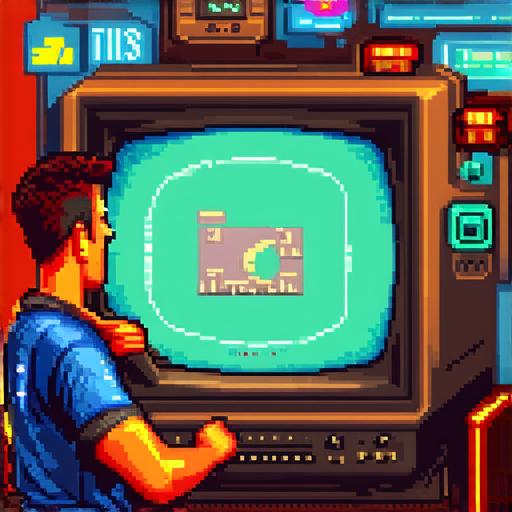Have you ever felt like life is just a video game? It’s not surprising to hear this sentiment from gamers and non-gamers alike. The concept of life feeling like a game has been explored by philosophers, writers, and even scientists. In this article, we will explore why life feels like a video game and what this means for us as individuals.
The Similarities Between Life and Video Games
Let’s start by looking at the similarities between life and video games. Both are interactive experiences that require decision-making, problem-solving, and strategic thinking. In both cases, you are navigating through a world and trying to achieve goals or objectives.

In video games, players are given a set of rules and constraints within which they must operate. They can choose how they navigate these rules and what actions they take in response to the environment. Similarly, in life, we are given a set of rules and constraints within which we must operate. These include laws of physics, societal norms, and personal beliefs.
Both video games and life involve risk-taking and exploration. In video games, players must navigate through levels that are filled with obstacles and enemies. They must make decisions about what to do in each situation, taking risks and learning from their mistakes. In life, we also take risks and explore new opportunities, but the consequences of our actions can be more significant.
The Psychology of Games and Life
Now that we have looked at some of the similarities between life and video games, let’s delve deeper into why this concept is so compelling. Research has shown that playing video games can have a positive impact on our mental health. For example, studies have found that video games can reduce stress and anxiety and improve mood and well-being.
This positive effect may be due to the sense of accomplishment and control that players feel in video games. When we play games, we are given feedback on our actions and progress through levels based on our performance. This feedback can give us a sense of purpose and meaning in life, which is essential for our mental health.
The Philosophy of Life as a Game
The idea that life is a game has also been explored by philosophers and writers. One famous example is the work of philosopher Friedrich Nietzsche, who argued that life is a struggle for survival. In his book “Thus Spoke Zarathustra,” he wrote: “He who fights with monsters should be careful lest he thereby become a monster.”
Nietzsche saw life as a game where individuals must navigate through challenges and obstacles in order to achieve their goals. By becoming too focused on winning, however, we risk becoming monstrous ourselves, losing our humanity and compassion for others.
Another philosopher who has explored the concept of life as a game is Martin Heidegger. In his book “Being and Time,” he argued that our lives are defined by the choices we make. By choosing how we navigate through the world, we create our own reality and shape our own future.
Case Studies: Game Developers
Now let’s look at some real-life examples of game developers who have applied the concept of life as a game to their work.
One example is game designer Jane McGonigal, who has written extensively on the benefits of games for mental health and well-being. In her TED talk “Game Over: What Happens When Play Becomes Obsession,” she discussed how games can help us overcome trauma and improve our resilience.
Another example is game designer Mateusz Makuch, who has created a game called “The Last Tree.” The game is based on the concept of life as a journey, where players must make choices that affect their future and the world around them.
